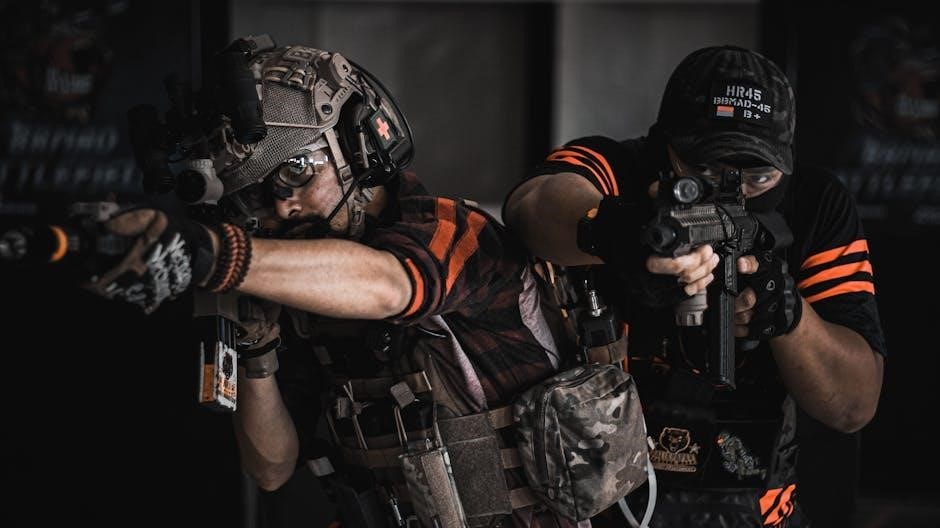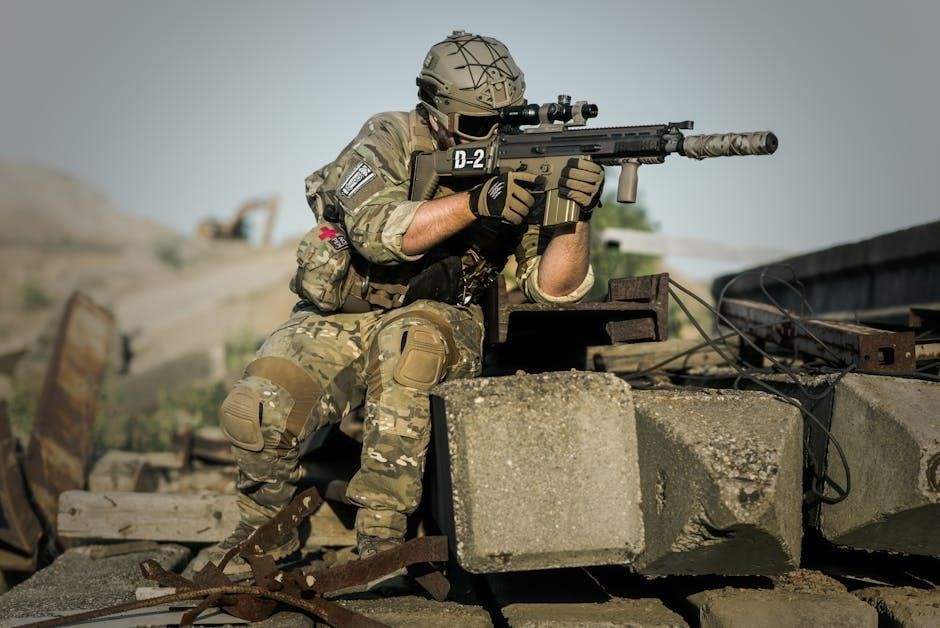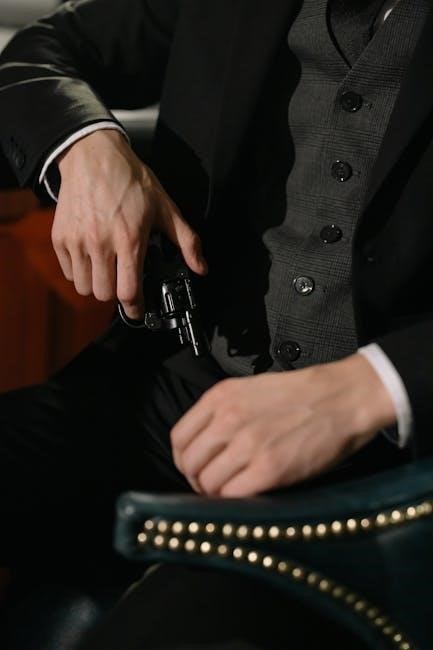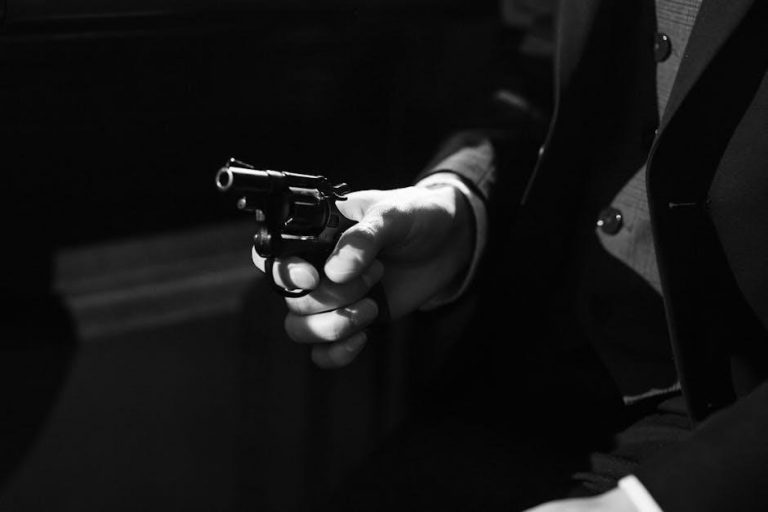Dalton Trumbo’s Johnny Got His Gun is a powerful anti-war novel published in 1939, exploring the physical and psychological trauma of World War I through Joe Bonham’s harrowing story.
Overview of the Novel
Johnny Got His Gun, written by Dalton Trumbo in 1939, is a gripping anti-war novel that follows Joe Bonham, a young American soldier severely injured during World War I. After a devastating explosion, Joe awakens in a hospital, discovering he has lost his arms, legs, and senses, leaving him trapped in a lifeless body. The novel explores Joe’s harrowing journey of survival, isolation, and existential despair, while delivering a powerful critique of war’s brutality and futility.
Historical Context and Relevance
Johnny Got His Gun, set during World War I, reflects the horrors of modern warfare and its devastating impact on soldiers. Published in 1939, the novel resonated amid rising tensions before World War II, offering a stark critique of militarism. Trumbo’s vivid portrayal of Joe Bonham’s suffering serves as a powerful anti-war statement, urging readers to question the glorification of conflict and its irreversible human cost, remaining timeless in its relevance.

Author Background: Dalton Trumbo
Dalton Trumbo, born in 1905 in Colorado, was a renowned American writer and screenwriter. His early life, marked by hardship, deeply influenced his writing, which often critiqued societal injustices and war.
Early Life and Career
Dalton Trumbo was born in 1905 in Colorado, where he grew up in a working-class family. After losing his father at a young age, he moved to Los Angeles and worked at a bakery while attending college. Trumbo began writing during this time, producing numerous short stories and novels, though many were initially rejected. His early experiences shaped his critical perspective on society and war, influencing his later works.
Trumbo’s Motivations for Writing the Novel
Dalton Trumbo’s primary motivation for writing Johnny Got His Gun was to critique the romanticization of war and highlight its devastating consequences. Inspired by the horrors of World War I, Trumbo aimed to expose the brutality and futility of conflict through Joe Bonham’s tragic story, advocating for pacifism and challenging societal glorification of warfare.

Protagonist Analysis: Joe Bonham
Joe Bonham, the protagonist, is a young soldier whose severe injuries in World War I symbolize the devastating cost of war and human resilience.
Physical and Psychological Trauma
Joe Bonham suffers unimaginable physical trauma, losing his arms, legs, eyes, ears, and mouth, rendering him completely dependent. Psychologically, he grapples with profound isolation and helplessness, unable to communicate or escape his trapped existence. His mind becomes his only refuge, yet it torments him with memories and despair. Trumbo vividly portrays the horrors of war through Joe’s shattered body and mind, emphasizing the inhumane cost of conflict on individuals.
Symbolism of Joe’s Condition
Joe Bonham’s condition symbolizes the dehumanizing effects of war, reducing a vibrant soldier to a limbless, sensory-deprived state. His trapped existence serves as a metaphor for societal entrapment in conflict, emphasizing the loss of individual freedom and autonomy. Trumbo uses Joe’s physical limitations to highlight the broader psychological and emotional toll of war, transforming him into a powerful symbol of anti-war sentiment and the devastating cost of militarism.

Themes and Motifs
The novel explores themes of anti-war sentiment, isolation, and the loss of identity, emphasizing the human cost of conflict and the destruction of individuality through war’s brutality.
The Horrors of War
Johnny Got His Gun vividly portrays the brutal consequences of war through Joe Bonham’s severe injuries, emphasizing the dehumanizing effects of conflict. Trumbo illustrates the physical and psychological toll, as Joe loses limbs, senses, and communication, trapped in a living nightmare. The novel underscores the futility and inhumanity of war, revealing its devastating impact on individuals and society, while questioning the glorification of military sacrifice.
Isolation and Helplessness
Joe Bonham’s condition epitomizes profound isolation and helplessness, as he is rendered deaf, blind, and mute. Trumbo highlights the psychological torment of being trapped in a non-functioning body, unable to communicate or connect with the world. This isolation underscores the inhumane consequences of war, leaving Joe in a state of despair and existential crisis, further emphasizing the novel’s anti-war message and critique of societal indifference to veterans’ suffering.
Historical Context: World War I Influence
Dalton Trumbo’s Johnny Got His Gun reflects the devastating impact of World War I, emphasizing the physical and emotional toll on soldiers and society, influencing Trumbo’s anti-war perspective.
Impact of the War on Soldiers
Dalton Trumbo’s Johnny Got His Gun vividly portrays the devastating impact of World War I on soldiers, particularly Joe Bonham, who loses his limbs, senses, and identity. The novel highlights the physical and psychological trauma, isolation, and helplessness faced by soldiers, emphasizing the inhumane cost of war. Trumbo’s depiction serves as a powerful critique of the glorification of war, revealing its true horrors and the lasting scars on individuals.
Societal Attitudes Toward War
Johnny Got His Gun critiques societal attitudes that glorify war while ignoring its devastating consequences. Trumbo exposes the romanticization of military service, revealing the harsh realities of soldiers’ sacrifices. The novel challenges the notion of war as noble, instead highlighting its brutality and the dehumanizing effects on individuals. By portraying Joe Bonham’s suffering, Trumbo underscores the need for a more critical view of war and its impact on humanity.
Johnny Got His Gun, published in 1939, is a haunting anti-war novel by Dalton Trumbo. It explores the physical and psychological trauma of World War I through Joe Bonham’s harrowing story, delving into themes of isolation, helplessness, and the horrors of war, while offering a powerful critique of militarism and societal attitudes toward conflict.
Plot Summary
Johnny Got His Gun follows Joe Bonham, a young American soldier in World War I, who is severely injured by a shell. He awakens in a hospital, realizing he has lost his arms, legs, and senses, leaving him trapped in a lifeless body. Through flashbacks, Joe reflects on his life, relationships, and motivations for enlisting. His internal struggle to communicate and find meaning in his existence underscores the novel’s critique of war and militarism.
Critical Reception and Interpretations
Johnny Got His Gun is widely acclaimed as a powerful anti-war classic, praised for its raw depiction of war’s horrors and its exploration of existential themes. Critics highlight its unflinching portrayal of physical and psychological trauma, resonating deeply during the Vietnam War era. The novel’s stark realism and moral urgency have made it a cornerstone of pacifist literature, often included in school curriculums to teach the true costs of conflict.

Isolation and Helplessness
Joe Bonham’s severe injuries leave him isolated, unable to communicate or connect with the world. His helplessness is compounded by his inability to express his thoughts, trapping him in silent despair.
Psychological Impact on Joe
Joe Bonham’s psychological trauma is profound, as he is trapped in a mind fully aware but unable to express itself. The horror of his condition slowly dawns on him, leading to despair and existential crisis. His inability to communicate isolates him further, intensifying feelings of helplessness and anger. The novel vividly portrays his internal struggles, highlighting the devastating mental toll of war on individuals, leaving them shattered and questioning life’s meaning.
Struggles to Communicate
Joe Bonham’s inability to communicate due to his physical limitations is a central theme. Trapped in a body without arms, legs, or senses, he struggles to express his consciousness. Desperate to connect, he devises a system using Morse code with his head, but his efforts are often ignored or dismissed. This isolation deepens his despair, highlighting the cruelty of a society indifferent to his plight and the futility of war’s aftermath;

The Loss of Identity
Joe Bonham’s severe injuries strip him of his autonomy, reducing him from a vibrant soldier to a limbless, voiceless invalid. His identity crumbles as he becomes a mere shadow of his former self, trapped in a body that no longer serves him, sparking an existential crisis.
From Soldier to Invalid
Joe Bonham transitions from a vibrant young soldier to a limbless, faceless invalid, stripped of his identity and autonomy; His transformation symbolizes the devastating cost of war, as his physical loss mirrors the erosion of his sense of self. Once a proud soldier, he becomes a helpless, dependent figure, trapped in a body that no longer serves him, leading to profound despair and a loss of purpose.
Existential Crisis
Joe Bonham’s severe injuries plunge him into an existential crisis, as he grapples with the loss of his identity and purpose. Trapped in a body that no longer functions, he questions the meaning of life and his place in the world. His inability to communicate or connect with others deepens his sense of isolation, leading to a profound exploration of existence, mortality, and the absurdity of his circumstances.

The Anti-War Message
Johnny Got His Gun delivers a scathing critique of war, exposing its brutal reality. Trumbo highlights the victimization of soldiers, the exploitation by political leaders, and the futility of conflict, urging a rejection of war’s glorification and advocating for peace. His pacifist views resonate strongly, warning against the devastating costs of militarism.
Critique of Political and Military Leadership
Trumbo sharply condemns political and military leaders, portraying them as detached from the horrors of war. The novel accuses leaders of exploiting soldiers for political gain, with Joe Bonham symbolizing the dehumanizing effects of war. Trumbo questions the morality of those who orchestrate conflict while remaining untouched by its consequences. His critique challenges the glorification of war, urging accountability for those who send young men to their doom for hollow ideals.
Trumbo’s Pacifist Views
Dalton Trumbo’s pacifist views are central to Johnny Got His Gun, as he denounces war’s brutality and the exploitation of soldiers. Through Joe Bonham’s plight, Trumbo emphasizes the futility of war and the moral responsibility of leaders. He advocates for peace by exposing war’s devastating consequences, urging society to reject glorified violence and prioritize human life over political agendas. The novel remains a powerful plea for pacifism and human dignity.

Impact and Legacy
Johnny Got His Gun remains a cultural landmark, influencing anti-war movements and literature. Its vivid portrayal of war’s horrors ensures its relevance, inspiring future generations to reflect on peace and humanity.
Cultural Significance
Johnny Got His Gun is a cultural touchstone, profoundly influencing anti-war movements and literature. Its vivid depiction of war’s horrors has made it a timeless classic, resonating across generations. The novel’s adaptation into film and stage plays further cemented its impact, ensuring its message about the human cost of war remains relevant. It continues to inspire reflection on peace, freedom, and the true price of conflict.
Adaptations and Popular Culture
Johnny Got His Gun has been adapted into a film directed by Dalton Trumbo himself in 1971, starring Timothy Bottoms as Joe Bonham. The novel also inspired a one-man play, further highlighting its emotional depth. Its influence extends to music, with Metallica’s song “One” drawing inspiration from Joe’s story. These adaptations ensure the novel’s message reaches wider audiences, keeping its anti-war themes relevant in modern culture.

Enduring Relevance
Modern-Day Implications
Johnny Got His Gun remains relevant today, offering a stark reminder of war’s devastating effects on soldiers and society. Its exploration of trauma, isolation, and the loss of identity continues to resonate, particularly in discussions about veterans’ welfare and the ethics of warfare. The novel’s powerful anti-war message aligns with modern awareness campaigns, ensuring its timeless impact on contemporary audiences.
Johnny Got His Gun retains its relevance by addressing universal themes like trauma, isolation, and the futility of war. The novel’s exploration of a soldier’s physical and psychological devastation resonates with modern discussions on veterans’ welfare, PTSD, and the ethical dilemmas of warfare. Its anti-war message serves as a cautionary tale, urging future generations to reflect on the human cost of conflict and the importance of promoting peace over violence.
Lessons for Future Generations
Johnny Got His Gun teaches future generations the dire consequences of war and the importance of questioning authority. By exposing the reality of conflict, the novel emphasizes the value of human life and the need for empathy. It challenges young people to critically evaluate political motivations and promotes pacifism, encouraging them to seek peaceful solutions to global conflicts and to never glamorize war.
